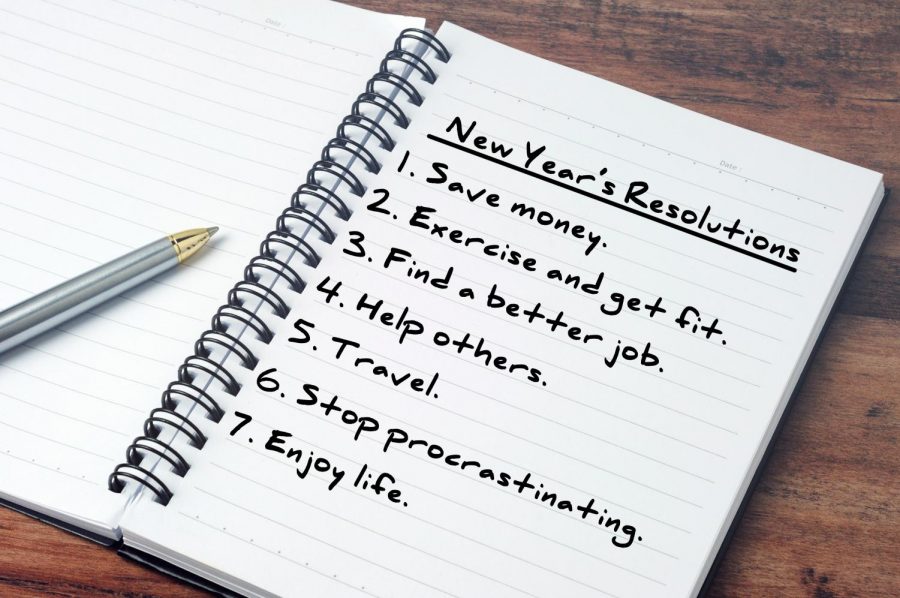New Year’s Resolutions
February 21, 2020
For many of us, 2020 offers new opportunities and experiences. With this new year, comes an oncoming influx of self-proclaimed goals. Some more popular New Year’s plans include getting in shape, saving money, learning a new skill, and more. Researchers claim that about 60% of people create resolutions‒that’s over half! However, according to the U.S News and World Report, 80% of New Year’s resolutions fail. Shockingly enough, less than 25% of people stay committed to their goals after a month. The statistics appear grim. This means most fail to maintain the plans they created at the beginning of the year. What are people doing wrong? Why aren’t more people bringing these fantastic dreams into reality?
There is nothing wrong with ambitious goals, but many should also consider a more realistic approach with these resolutions. There is a cold reality to life: it is never a linear, trouble-free path towards success‒there are detours, stops, bumps, twists, and turns. A vast majority of people are unsuccessful due to their failure to consider the unpredictable nature of life. Truth is, failure is inevitable. Everyone has failed at some point in their lives. Understandably, striving to meet goals and failing can often bring about frustration and discouragement. However, what really matters is whether or not one has the strength to persevere through setbacks and hardships.
When setting new goals, big problems lie within the content and execution of people’s resolutions. Some people set goals that are too difficult to maintain. Others make the mistake of having too many vague, unclear goals. For example, many claim they will get in shape. This is a solid resolution, but how you are going to get in shape matters. Having a plan makes keeping your resolution easier and helps you avoid unnecessarily wasting time. Be sure to have an outline for your plans this year.
There are specific strategies you may employ while creating your goal this year to maximize your success. For example, you can set goals that are specific and challenging. Research shows that, when people followed these two principles, this led to a 90% higher performance. To put this into perspective, let’s say you wanted to get in shape. Eliminate the unclarity in that statement by making your goal more specific like saying: By August, I will lose five pounds through cutting my junk food intake and running for 30 minutes every weekday.
Take everything one step at a time, and one thing at a time. Avoid multitasking. If you split your focus on many tasks, it ends up lowering the quality of your performance and your chance at completing it. Maintaining one goal and breaking it into deadlines is the most efficient method to follow when planning your New Year’s resolution. Additionally, having someone to lean on‒such as a friend, family member, or trusted advisor‒helps keep you accountable!
Lastly, if there is one thing that will help you reach success in your New Year’s endeavors, it’s this: you have to badly want your goal. If you don’t have the desire to achieve the resolution, then you never will. Being genuinely serious about accomplishing your plans makes you far more likely to follow through your New Year’s plans.
Michael Sanchez, a junior at Pitman High School, reflects on his past year and shares his vision for the upcoming one: “Even if things don’t go as planned, the objective has not changed. This year, I want to challenge myself more and go out of my comfort zone to help myself grow as a person rather than change myself completely. By the end of this year, I see myself genuinely happy with my school work and having a decent job to help my mom out.”
All in all, you have to have that winner mentality! Many people believe that those who complete their resolutions are genetically predisposed to achieve success or greatness, but it is far from that. Believing in yourself is the most important part in your New Year’s endeavors.
